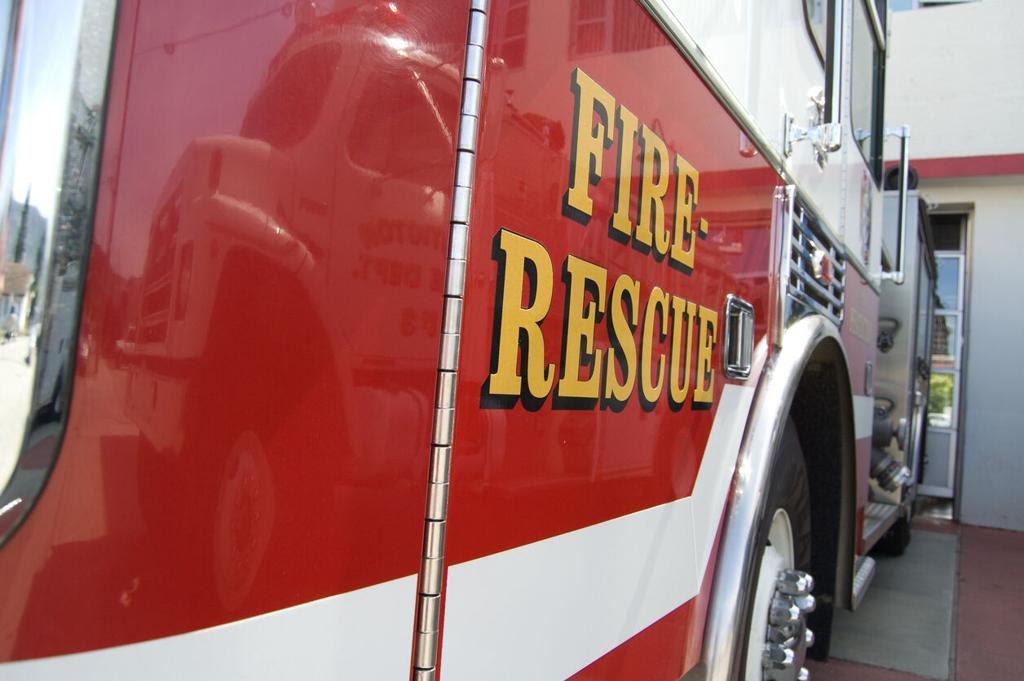Fire at off-campus student residence near CU Boulder displaces 7 students
The fire ignited early Sunday morning at 1215 12th St., an off-campus residence near the University of Colorado.A building fire at an off-campus student residence in Boulder on Sunday morning has left seven students displaced, according to Boulder Fire Rescue.
The fire ignited early Sunday morning at 1215 12th St. near Broadway and Pleasant Street, at an off-campus residence near the University of Colorado campus.
No injuries are reported.
Boulder Fire Rescue first reported the residential fire at around 3 a.m. on social media platform X. First responders extinguished the flames a couple of hours later, fire rescue officials reported at 4:55 a.m.
A Boulder Fire Rescue spokesperson said only three of the 17 total units in the residence were occupied at the time of the fire. Most students are out on winter break at CU with classes scheduled to resume Jan. 13.
However, the fire left seven students inside the building without apartments Sunday. The extent of the damage to the residence and whether the building will be ready in time when classes resume remains unclear.
Fire investigators remained on-scene Sunday to determine the cause of the fire, according to officials. The building is closed to businesses and residents during the initial investigations.
The Red Cross is assisting the seven students with housing resources, according to a fire rescue spokesperson.
Boulder Police, Boulder Emergency Services, Mountain View Fire Rescue, AMR, Xcel Energy, and Red Cross assisted in recovery efforts.**Fire at Off-Campus Student Residence Near CU Boulder Displaces 7 Students**
A fire at an off-campus student residence near the University of Colorado Boulder has left seven students displaced and raised concerns about student housing safety in the area. The fire, which broke out early on a Wednesday morning, has prompted a response from local fire authorities, university officials, and student organizations. While no injuries have been reported, the incident has highlighted the vulnerability of students living in off-campus housing and the need for improved safety measures and communication between students and landlords.
The Incident: What Happened?
The fire occurred in a two-story duplex located just a few blocks from the CU Boulder campus. According to Boulder Fire-Rescue, the blaze started around 3:30 a.m. in the rear of the building. The exact cause of the fire remains under investigation, but fire crews quickly responded to the emergency, managing to contain the flames within 30 minutes of their arrival. While the fire did not spread to neighboring homes, the building sustained significant damage, particularly in the areas where the fire originated.
Witnesses reported hearing the fire alarms going off before the smoke spread through the residence. Seven students, who were residing in the duplex at the time, managed to escape without injury, but they lost personal belongings and, in some cases, essential academic materials in the flames. Fortunately, the fire was contained before it could affect surrounding residences.
Boulder Fire-Rescue Captain Sarah Munoz spoke to the media about the urgency of the situation, noting, “We’re incredibly fortunate that no one was injured, but this is a reminder of how quickly a fire can spread, especially when it’s late at night and people are asleep.”
Impact on the Students
The students displaced by the fire are all enrolled at CU Boulder, and their lives have been turned upside down by the event. Many of them were left without critical items such as textbooks, laptops, and clothing. As students rely heavily on these items for their studies and daily lives, the loss has caused considerable disruption to their academic and personal routines.
“We’ve lost so much, it feels surreal,” said Maria Gonzalez, one of the displaced students, speaking with tears in her eyes. “I don’t even know where to start with getting everything back together.”
The students were initially assisted by the local Red Cross, who provided temporary shelter and essentials. However, the long-term repercussions are far more complicated, as the students now need to find new accommodations and figure out how to replace essential items, including costly academic materials.
Some of the affected students have found temporary housing with friends, but for others, the uncertainty surrounding their living situation has become a source of stress and anxiety. The situation has also prompted students to reassess their off-campus housing choices.
“I never thought something like this could happen to me,” said Zachary Mitchell, another displaced student. “It’s eye-opening how fragile our living situations are as college students. It’s not just about finding a place to live, it’s about feeling safe.”
Safety Concerns in Off-Campus Housing
While CU Boulder provides on-campus housing for students, many choose to live off-campus for reasons related to cost, independence, or simply finding a better living arrangement. Off-campus housing in Boulder, especially near the university, is in high demand, with rental prices rising steadily each year. The fire has drawn attention to the potential hazards faced by students living in privately owned residences.
Boulder has several off-campus student housing options, ranging from shared apartments to single-family homes. However, many of these properties are older buildings that were not designed with student housing in mind. As a result, they may lack some of the safety features found in modern residences, such as sprinkler systems or updated fire escapes.
A statement from CU Boulder’s Office of Student Affairs acknowledged that while the university’s on-campus facilities meet high safety standards, students living off-campus may not always benefit from the same level of oversight. “We encourage all students living off-campus to ensure their residences meet fire safety codes and to consider renter’s insurance to protect their personal belongings,” the statement read.
Off-campus housing safety is regulated by the city of Boulder, but critics argue that enforcement of safety codes can sometimes fall short. According to local regulations, landlords are responsible for ensuring that their properties are up to code, including having fire alarms and extinguishers in place. However, compliance with these regulations has been inconsistent, and some students report that their landlords have been slow to address safety concerns.
“I’ve had issues with fire alarms not working in my building before,” said Hannah Foster, a senior at CU Boulder who lives in an off-campus apartment. “I told my landlord, but nothing ever really got fixed. I think this fire could have been much worse if the alarms hadn’t gone off in time.”
The University’s Response
CU Boulder has offered support to the displaced students, both emotionally and financially. The university’s Student Affairs office has coordinated with local organizations to provide temporary housing and access to emergency funds. Additionally, CU Boulder’s Counseling and Psychological Services (CAPS) is offering free counseling for affected students to help them cope with the trauma of the fire.
“We are committed to supporting our students in times of crisis,” said Dr. Michelle DeAngelis, director of the CU Boulder Counseling and Psychological Services. “The mental health impact of such an event can be significant, and we are here to help our students navigate through it.”
The university has also encouraged students living in off-campus housing to review safety measures with their landlords and to take necessary steps to protect their well-being. A recent communication sent to students emphasized the importance of having a fire safety plan, knowing evacuation routes, and having working smoke detectors in place.
Community Support and Future Prevention
The fire at the off-campus student residence has galvanized the Boulder community. Several local organizations have stepped in to offer support to the displaced students. The Boulder Housing Coalition, for example, has begun fundraising efforts to help the students replace their lost items and cover additional expenses related to their displacement. Additionally, many students, faculty, and staff at CU Boulder have volunteered to assist with relocation efforts, provide meals, and offer emotional support.
Boulder residents have also expressed a desire to improve fire safety awareness and prevention in the area. Some have called for more rigorous inspections of off-campus student housing, particularly as the demand for housing in Boulder continues to rise. The city council is expected to discuss potential safety measures in upcoming meetings, including the possibility of implementing more frequent safety checks for rental properties.
Local fire safety experts have recommended that renters, especially students, be proactive in ensuring their homes are up to code. “It’s important for students to take responsibility for their own safety by checking fire alarms, ensuring fire extinguishers are available, and making sure they know how to escape in case of an emergency,” said Mark Thompson, a fire safety consultant in Boulder.
The fire at the off-campus student residence near CU Boulder has had a profound impact on the lives of the seven students affected. While the immediate loss of belongings is devastating, the incident has also sparked broader discussions about the safety of off-campus housing for students in Boulder. The university, local organizations, and the community have stepped up to support the displaced students, and efforts are underway to ensure that such an incident does not occur again in the future.
As Boulder continues to grow and the demand for student housing increases, it is essential that both landlords and renters prioritize safety in off-campus housing. The fire serves as a tragic reminder of the vulnerabilities that students face in their living environments, and it is a call to action for better safety standards, more effective communication, and a collective effort to keep students safe both on and off-campus.






